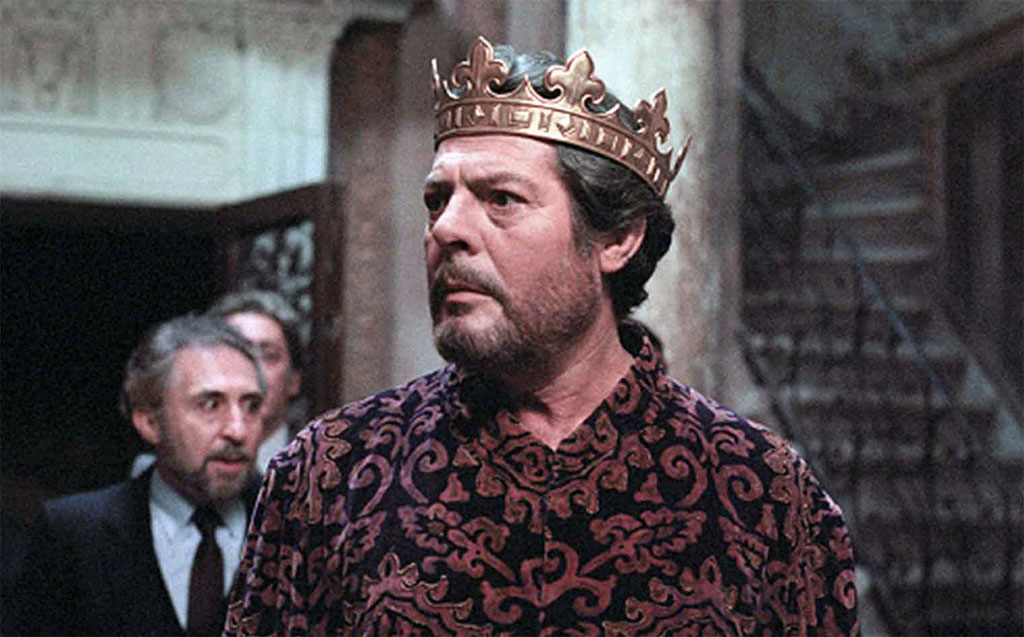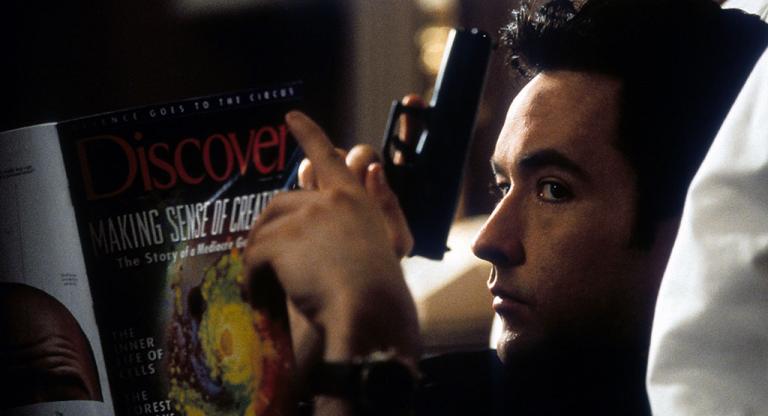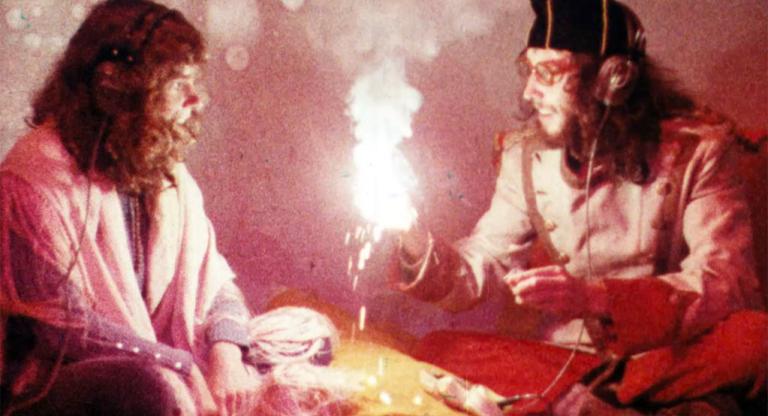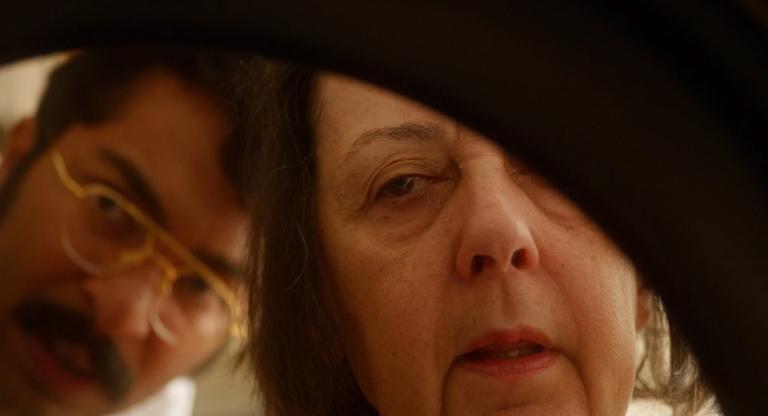Marco Bellocchio’s 1984 adaptation of Luigi Pirandello’s 1922 play, Henry IV, begins with an achingly beautiful moment. The magical light of the Italian countryside slowly fills the interior of a moving car, silhouetting the forms of its passengers to the accompaniment of Astor Piazzolla’s wistful score. The landscape beyond the car’s windows is obscured and at moments abstract, making what is explicit in Pirandello’s play—the fog of memory and the nature of madness—formally implicit by Bellocchio’s camera.
The travelers in the car are eventually revealed. There is a psychologist (Leopoldo Trieste), an elegant older woman (Claudia Cardinale), and her daughter (Latou Chardons). The group is en route to see the emperor, Henry IV. But in reality, Henry (Marcello Mastroianni, 60 years old at the time) is a man who has been under the delusion that he is the historic German emperor, frozen at the age of 26 for the past twenty years. Each day, his fantasy is enabled by costumed servants, period furniture, and manners; together, they maintain the illusion that it’s 900 years in the past. The visitors arrive with the hopes of curing Henry, but things are perhaps not as they seem as an ill-fated romance and a malicious prank from the past come to light. Eventually, the true nature of the king’s “madness” is revealed.
Bellochio’s filmography is characterized by a simmering dissatisfaction with life—from as early as the director’s breakthrough Fists in the Pocket (1965)—that is sometimes sexual, sometimes political, and sometimes existential. Henry IV is no exception. Released two years before Bellocchio’s notoriously explicit The Devil in the Flesh (1986), the melancholic Henry IV offers a quiet passion by contrast; it adds a new dimension to Pirandello’s work, serving as both a faithful adaptation of the towering playwright’s text and a moody elegy for bygone youth and an aging Italian cinema. Throughout the film, characters catch glimpses of their younger selves through windows and in photos as well as paintings. The glimpses fill their middle-aged faces with tender longing. We see it in Claudia Cardinale’s warm yet mysterious expression and in Marcello Mastroianni’s boyish smile and eyes, still sparkling despite his age. These well known faces haunt Henry IV like the portraits that hang in the film’s faux palace, conveying the tragedy of growing old, which is rendered here as life's most inescapable dissatisfaction. The incessant ticking of the clock will not be halted, a theme alluded to by a broken clock on the castle wall that springs back to life at a key moment. In light of this, maybe there is some wisdom in Henry’s “madness.” “This is my life! Quite a different thing from your life!” the emperor tells his visitors. “Your life, the life in which you have grown old, I have not lived that life.”
Henry IV screens this evening, May 20, at The Quad as part of “Marco Bellocchio's Films of Revolution.”





